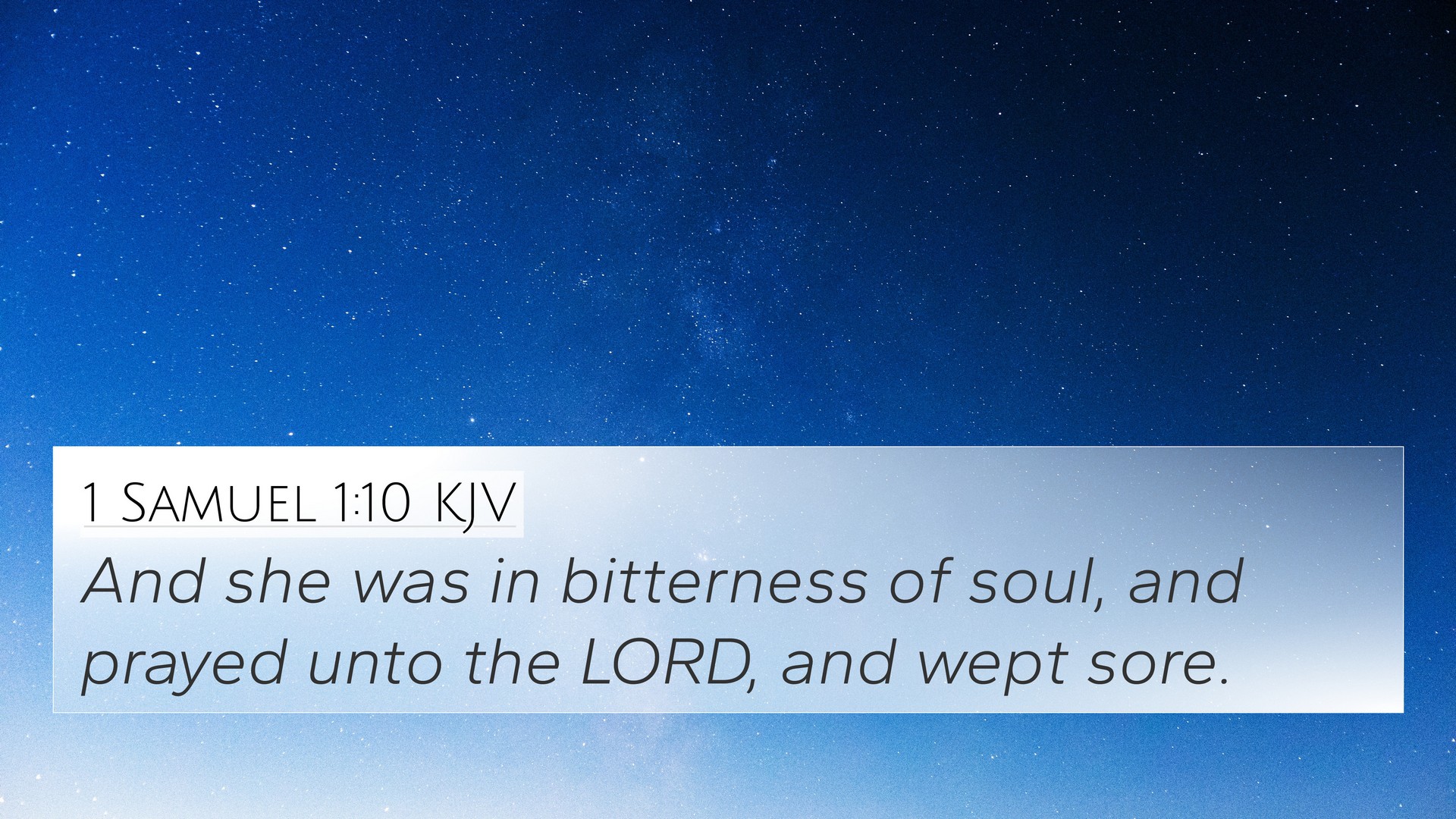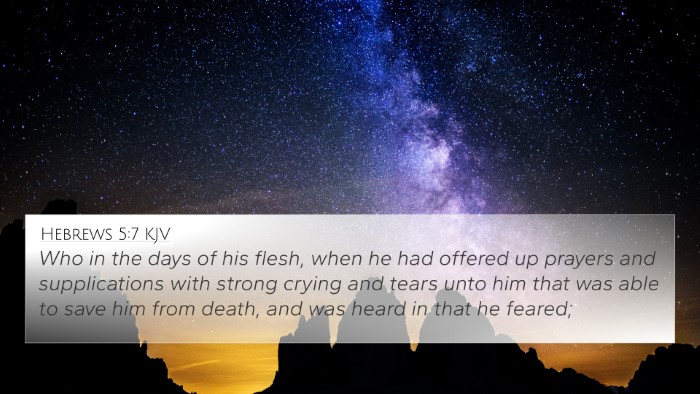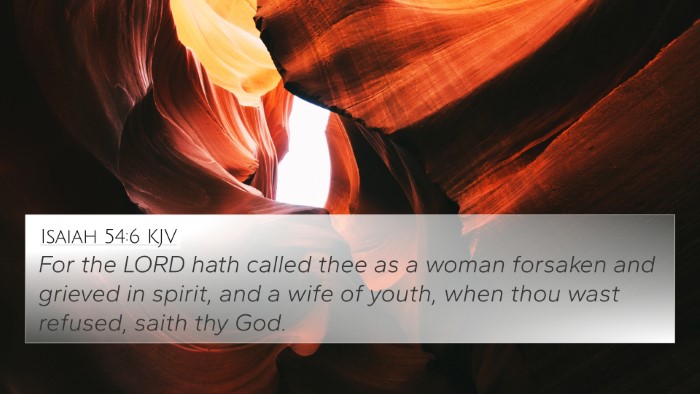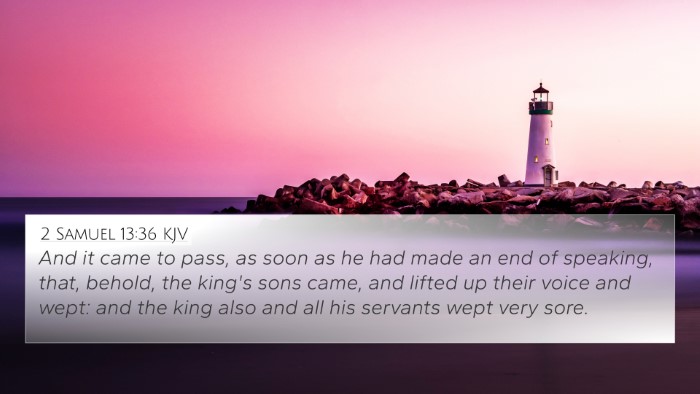Understanding 1 Samuel 1:10
Verse: "And she was in bitterness of soul, and prayed unto the LORD, and wept sore."
The verse encapsulates a significant moment in the life of Hannah, the mother of Samuel, highlighting her deep emotional turmoil and fervent prayer. Through a combined interpretation from various public domain commentaries, we can delve into the meaning and implications of this verse.
Contextual Background
Hannah was one of two wives of Elkanah, and despite her devotion and place in the family, she had not been able to bear children. This inability to conceive caused her immense grief, especially in a culture that prized motherhood. Her rival, Peninnah, provoked her continually, leading her to experience bitterness and despair.
Spiritual Insight
1 Samuel 1:10 emphasizes the intensity of Hannah's emotions. It reveals a crucial aspect of the human experience—acknowledging and presenting our sorrow before God.
- Bitterness of Soul: Hannah's suffering reflects a profound spiritual struggle. According to Matthew Henry, this bitterness indicates deep sorrow that can lead to seeking God earnestly. It shows how one's heart can be heavy with burdens, prompting them to reach out in prayer.
- Praying Unto the LORD: Hannah’s prayer signifies an important practice of turning to God in times of distress. Albert Barnes suggests that true prayer emerges from a genuine place of need, as Hannah's prayer was not just a routine but filled with desperation.
- Wept Sore: This phrase underscores the emotional weight of her prayer. Adam Clarke elaborates that Hannah's tears are indicative of her heartfelt plea for assistance and her unequivocal trust in God's power to intervene.
Connecting Themes
This verse embodies multiple themes that resonate throughout the scripture:
- Despair and Hope: Hannah's plight and her ensuing prayer stand as a powerful narrative illustrating how despair can prompt one to seek divine intervention.
- Faithfulness in Trials: The fidelity of Hannah in her trials correlates with the resilience shown by other biblical figures facing adversity (e.g., Job, Rachel).
Cross-References
Several Bible verses relate to 1 Samuel 1:10, enhancing our understanding through classical inter-Biblical dialogue:
- Psalm 34:18: "The LORD is near to the brokenhearted and saves the crushed in spirit."
- Hebrews 4:16: "Let us then with confidence draw near to the throne of grace, that we may receive mercy and find grace to help in time of need."
- Matthew 7:7: "Ask, and it will be given to you; seek, and you will find; knock, and it will be opened to you."
- James 5:16: "The prayer of a righteous person is powerful and effective."
- 1 Peter 5:7: "Cast all your anxiety on him because he cares for you."
- Genesis 30:1: "When Rachel saw that she bore Jacob no children, she envied her sister. And she said to Jacob, 'Give me children, or I shall die!'"
- Luke 18:1: "And he told them a parable to the effect that they ought always to pray and not lose heart."
- Philippians 4:6-7: "Do not be anxious about anything, but in everything by prayer and supplication with thanksgiving let your requests be made known to God."
- Romans 12:12: "Rejoice in hope, be patient in tribulation, be constant in prayer."
Conclusion
1 Samuel 1:10 serves as a poignant reminder of the depths of human emotion and the power of prayer. Hannah’s story not only signals her personal struggles but also illustrates vital spiritual truths applicable to believers today. We are encouraged to confront our bitterness and anguish, remembering to seek God with sincerity, much like Hannah did. The connections between Bible verses through cross-referencing further enrich our understanding of God's faithfulness and the importance of prayer in our lives.
As we delve into the details of Bible verses, utilizing tools for Bible cross-referencing can greatly enhance our understanding of themes and narratives throughout Scripture. Whether through a Bible concordance or a systematic Bible cross-reference guide, engaging with the Word allows us to uncover the rich tapestry of interrelated scriptures.




















